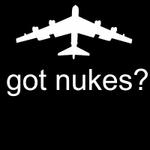Der nächste Krieg der USA wird gegen den Iran sein
04.08.2019 um 13:37Ach, so ist das...Quiron schrieb:Falsch. Der gute Wille besteht darin, sich an einen Tisch zu setzen, sich überhaupt auf ein Abkommen einzulassen und Bedingungen wie z.B. diese, Arak betreffend, anzunehmen.
Schauen wir uns mal die Realität an:
In late February International Atomic Energy Agency(IAEA) inspectors visited Natanz.[28] In May 2003 Iran allowed IAEA inspectors to visit the Kalaye Electric Company but refused to allow them to take samples, and an IAEA report the following month concluded that Iran had failed to meet its obligations under the previous agreement.[28]Wikipedia: Joint Comprehensive Plan of Action
In June 2003 Iran—faced with the prospect of being referred to the UN Security Council—entered into diplomatic negotiations with France, Germany, and the United Kingdom (the EU 3).[26][28] The United States refused to be involved in these negotiations.[28] In October 2003 the Tehran Declaration was reached between Iran and the EU 3; under this declaration Iran agreed to cooperate fully with the IAEA, sign the Additional Protocol, and temporarily suspend all uranium enrichment.[26][28] In September and October 2003 the IAEA conducted several facility inspections.[26] This was followed by the Paris Agreement in November 2004, in which Iran agreed to temporarily suspend enrichment and conversion activities, "including the manufacture, installation, testing, and operation of centrifuges, and committed to working with the EU-3 to find a mutually beneficial long-term diplomatic solution".[26]
In August 2005 Mahmoud Ahmadinejad, a hard-liner, was elected president of Iran. He accused Iranian negotiators who had negotiated the Paris Accords of treason.[28][29]Over the next two months, the EU 3 agreement fell apart as talks over the EU 3's proposed Long Term Agreement broke down; the Iranian government "felt that the proposal was heavy on demands, light on incentives, did not incorporate Iran's proposals, and violated the Paris Agreement".[26][28] Iran notified the IAEA that it would resume uranium conversion at Esfahan.[26][28]
In February 2006 Iran ended its voluntary implementation of the Additional Protocol and resumed enrichment at Natanz, prompting the IAEA Board of Governors to refer Iran to the UN Security Council.[26][28] After the vote, Iran announced it would resume enrichment of uranium.[28] In April 2006 Ahmadinejad announced that Iran had nuclear technology but said that it was purely for power generation, not weapons.[28] In June 2006 the EU 3 joined China, Russia, and the United States, to form the P5+1.[28] The following month, July 2006, the UN Security Council passed its first resolution demanding Iran stop uranium enrichment and processing.[28]Altogether, from 2006 to 2010, the UN Security Council subsequently adopted six resolutions concerning Iran's nuclear program: 1696 (July 2006), 1737 (December 2006), 1747 (March 2007), 1803 (March 2008), 1835 (September 2008), and 1929 (June 2010).[30]The legal authority for the IAEA Board of Governors referral and the Security Council resolutions derived from the IAEA Statute and the United Nations Charter.[30] The resolutions demanded that Iran cease enrichment activities and imposed sanctions on Iran, including bans on the transfer of nuclear and missile technology to the country and freezes on the assets of certain Iranian individuals and entities, in order to pressure the country.[26][28]
[...]
In September 2009 U.S. President Barack Obama revealed the existence of an underground enrichment facility in Fordow, near Qom, saying, "Iran's decision to build yet another nuclear facility without notifying the IAEA represents a direct challenge to the basic compact at the center of the non-proliferation regime."[36] Israel threatened to take military action against Iran.[28]
June 2003 IAEA report concludes that Iran has failed to meet its obligations under the safeguards agreement.https://www.theguardian.com/world/2015/apr/02/iran-nuclear-talks-timeline
June 2003 Following the IAEA report, the UK, Germany and France (the EU-3) launch a joint diplomatic effort to address Iran’s nuclear policy. The US refused to be involved in the talks.
October 2003 Under threat of referral to the UN security council, Iran reaches an agreement with the EU-3, known as the Tehran Declaration. Iran agrees to cooperate fully with the IAEA and suspend all uranium enrichment.
August 2005 Mahmoud Ahmadinejad is elected president of Iran. He is seen as supportive of the country’s nuclear programme.
August-September 2005 EU-3 deal begins to fall apart as Iran resumes the conversion of uranium at the Isfahan facility. Ahmadinejad gives a speech at the United Nations stating that Iran has the right to develop a nuclear power programme.
February 2006 The IAEA votes to report Iran to the UN security council. After the vote, Iran announces it will resume enrichment of uranium.
April 2006 Ahmadinejad announces Iran has joined the group of countries that have nuclear technology, but adds that this is purely for providing power, not producing weapons.
June 2006: China, the US and Russia join the UK, Germany and France to form the P5+1. The term refers to the five permanent member states of the UN security council, plus Germany, which is one of Iran’s key trading partner.
July 2006 The UN security council passes its first resolution demanding Iran stop its uranium enrichment and processing activities.
2006-2010 The security council adopts a total of six resolutions and imposes gradual sanctions on Iran, including freezing assets of individuals and companies related to the enrichment programme and banning the supply of nuclear-related technology to the country
September 2009 The US president, Barack Obama, reveals the existence of an underground enrichment facility in Fordow, near the Iranian city of Qom. The US begins talking seriously about air strikes against Iran, and Israel threatens to take nuclear action.
"The most important promise" the Europeans gave Iran, he said, "was that they would stand firm against attempts to take this case to the U.N. Security Council."https://www.nytimes.com/2006/03/14/world/middleeast/showdown-at-un-iran-seems-calm.html
The speech was published late last year in a Persian-language journal, Rahbord.
Iran's nuclear strategy had been based on keeping the program secret, Mr. Rowhani said, and once that secrecy was shattered, the country became vulnerable to pressure. Iran, he said, had "no choice" except to enter into negotiations with the Europeans and to open its nuclear facilities to inspectors.
Under a November 2004 agreement with the Europeans, Iran pledged to freeze enrichment-related activities as long as the two sides were negotiating a long-term package of incentives for the country.
But in a remarkable admission, Mr. Rowhani suggested in his speech that Iran had used the negotiations with the Europeans to dupe them. He boasted that while negotiations were continuing, Iran managed to master a key stage in the nuclear fuel process -- the conversion of uranium yellowcake at its Isfahan plant.
"While we were talking with the Europeans in Tehran, we were installing equipment in parts of the facility in Isfahan, but we still had a long way to go to complete the project," he said. "In fact, by creating a calm environment, we were able to complete the work on Isfahan."
The EU supports the Treaty on the Non-Proliferation of Nuclear Weapons, which entered into force on 5 March 1970. Iran ratified this treaty assuring the international community that it will use nuclear energy for peaceful purposes.Oh, das kennen wir irgendwoher...
In 2003, it was discovered by the International Atomic Energy Agency (IAEA) that Iran is conducting secret activities with nuclear materials. Iran’s refusal to cooperate proactively with the IAEA and its resistance to report to the United Nations Security Council(UNSC) led to a diplomatic effort by the European council and its three members France, Germany and the United Kingdom to resolve this issue through negotiations. They were joined in 2004 by the EU High Representative, and thus offering support by all EU members. Subsequently in 2005 and 2006, extensive proposals to facilitate peaceful nuclear energy usage were again presented to the Iranian authorities. Even with the support of China, Russia and the United States through these proposals, Iran could not be convinced to follow the requests by the IAEA. As a result, four resolutions (N° 1696, 1737, 1747 and 1803) were put in place by the United Nations Security Council: they demanded to suspend all Uranium-235enrichment and heavy water activities and restricted acquisition of nuclear and ballistic materials by Iran. Those policies were reiterated in 2008 by the EU.[3]
The continuing refusal by Iranian authority to make clear declarations and to allow sufficient inspections of their nuclear facilities then convinced the EU to enforce additional sanctions on civilian goods and services such as financial activities and energy sector technologies. In 2012, an oil embargo and restrictive financial boycotts were enforced by the EU, in addition to UN sanctions against Iran
[...]
EU–Iran relations have been strained in the early 2010s by the dispute over the Iranian nuclear program. The European Union along with United States have imposed sanctions against Iran over the controversies around Iranian nuclear program. These sanctions which have been described as the toughest EU sanctions imposed against any other country by European officials were last strengthened on 15 October 2012 within by the EU Council.[13][14]
On 23 January 2012, the Council of the European Union released a report in which it restated its concerns about the growth and nature of Iran's nuclear programme.[15] As a result, the Council announced that it would levy an embargo on Iranian oil exports. Further, it stated that it would also freeze assets held by the Central Bank of Iran and forestall the trading of precious metals and petrochemicals to and from the country.[16]This replaces and updates the previous Council Regulation 423/2007 that was published on 27 July 2010. The new sanctions put restrictions on foreign trade, financial services, energy sectors and technologies and includes a ban on the provision of insurance and reinsurance by EU insurers to the State of Iran and Iranian owned companies.[17] Iran has since declared its intentions to close the Strait of Hormuz should the embargo be enacted.[18]
Weiter im Text:
[...]Wikipedia: Iran–European Union relations
On 17 March 2012, following agreement two days earlier between all 27 member states of the Council of the European Union, and the Council's subsequent ruling, the SWIFTelectronic banking network, the world hub of electronic financial transactions, disconnected all Iranian banks from its international network that had been identified as institutions in breach of current EU sanctions, and that further Iranian financial institutions could be disconnected from its network.[1]
Mind ein Jahrzehnt von unkooperativem Verhalten, Betrug, den man offen eingesteht, dem Zurückziehen aus oder Brechen von Absprachen und Abkommen, 6 UN-Resolutionen und Sanktionen, die immer weiter kulminierten, bis sie zumindest von Seiten der EU die härtesten Sanktionen ever waren und der Androhung von militärischen Interventionen.
Die US-Sanktionen muss ich wohl nicht noch zusätzlich aufführen.
Und erst dann gab es Gespräche....die zeitweilig übrigens auch noch zu scheitern drohten.
Und das ist bei @Quiron dann der gute Wille des Iran.
Denn in seiner fanatischen Opposition zu Donald Trump macht es ihm gar nichts aus, dieses Regime immer wieder für sakrosankt und vernünftig, kompromiss- und dialogbereit usw zu erklären, auch wider aller Fakten...
In dieser merkwürdigen Fantasierealität gab es nämlich nur dolle Diplomatie und alles war Friede, Freude, Eierkuchen und alle hatten sich lieb, bis die Willkür- und Bösartigkeits-USA alles über den Haufen warf.
Es wurde hier langsam ausführlich genug dargelegt und die sagen das sogar im Fernsehen.Quiron schrieb:Was immer noch zu beweisen wäre….
Dass das keinen Vertragsbruch darstellt, aber sehr wohl dessen Sinn bzgl Arak zuwiderläuft, sage ich die ganze Zeit.
Klar, das hier hat gar nichts mit Trump zu tun:Quiron schrieb:Komisch, ich habe Trump in dem Satz überhaupt nicht erwähnt.
---Quiron schrieb:dass sie sich dagegen absichern, falls plötzlich irgend so ein Clown Präsident der USA wird und meint, er müsse sich nicht mehr an Vereinbarungen halten.
Das ist immer noch umgedrehte Kausalität und auch quasi eine self fulfilling prophecy.Quiron schrieb:Was ich andeutete war, dass man sich auf alle Eventualitäten vorbereitet hat, nach dem Motto: "Besser man hat es und braucht es nicht, als dass man es braucht und nicht hat." Und die Ereignisse geben dem Iran ja recht.
Faktisch hat der Iran sich zuerst Lücken in diesem Abkommen gesucht und wie oben ausführlich belegt, eine lange Karriere mit solchem Blödsinn.
Dann wurde das Abkommen gekündigt.
Nur kommt bei dir gar nicht in Frage, dass das einer der Gründe sein könnte sondern die Kündigung ist eine reine Willkürmaßnahme, weil man bösartig ist.
Anhand dessen interpretierst du dann die Vorgänge und dementsprechend bleibt dir dann auch nichts anderes übrig als zu behaupten, dass man Lücken im Vertrag suchte und diese auch ausnutze, weil man diese Willkürmaßnahme ja voraussah.
Das ist eine reichlich lächerliche Argumentation.
So würde auch ein vollkommen eindeutiger Verstoß keinen "Beweis" darstellen.
"Der Iran hat gegen das Abkommen verstoßen? Natürlich hat er das! Die waren sich doch im Klaren, dass das mit den USA keine Zukunft hat und die es kündigen würden...warum sollen sie sich dann dran halten? Wäre doch zu ihrem Nachteil. Völlig verständlich und sie hatten ja recht".
Kann man immer anwenden :D.
Wenn man die Kündigung eindeutig als Willkürmaßnahme definiert, wovon du auch trotz Fakten nicht abweichen würdest, gibt es keinen Verstoß, der nicht nachvollziehbar und geboten war.
Ja, doch, siehe oben.Quiron schrieb:Wenn der Bau der Atombombe im Iran so schnell wie möglich erfolgen sollte, dann hätten sie sich nie auf ein Abkommen eingelassen, das eben diesen Bau um mindestens 10 bis 15 Jahre verzögert hätte.
Das ist ein tolles Autoritätsargument.Quiron schrieb:Schließlich weiß ich mir hier einer Meinung, mit der IAEA, den Vertragspartnern des JCPoA, oder einfach dem Rest der Welt.
Würdest du mir bitte Statements bzgl dieses Sachverhalts von IAEA, den Vertragspartner des JCPOA und dem Rest der Welt verlinken oder musst du sogar Autoritätsargumente erfinden?
Das ist eine dummdreiste Lüge.Quiron schrieb:Was dich nicht daran hindert, dem Iran ständig Vertragsbruch zu unterstellen, obwohl es dafür noch keine Beweise gibt. Trotz all der ach so bemühten Anstrengungen…
Ich sagte von Anfang an, dass man sich Lücken im Abkommen gesucht hat und diese ausnutzt und damit den Zweck konterkariert und das dahingehend, dass man eben keinen Vertragsbruch nachweisen kann.
Ne, ich vergleiche das:Quiron schrieb:Na, wenn du die hier mit der Bild-Zeitung vergleichen willst:
https://www.timesofisrael.com/tv-iaea-finds-traces-of-radioactive-material-at-iran-site-named-by-netanyahu/https://www.jpost.com/Breaking-News/Mossad-leads-IAEA-to-find-radioactive-material-in-violation-of-nuke-deal-report-5953...
mitQuiron schrieb:dass man in einer Teppichreinigung in einem Teheraner Vorort, angeblich Beweise gefunden hätte, dass der Iran dort quasi eine Atombombe zusammenbastelt.
Iran bastelte an Atombombe in einer Teppichreinigunghttps://m.bild.de/politik/ausland/politik-ausland/iran-bastelte-an-atombombe-in-einer-teppichreinigung-un-hat-den-beweis-63246708,view=amp.bildMobile.html
Und in keiner deiner Quellen steht irgendwo, dass man in einer Teppichreinigung eine Atombombe baute.
Das ist einfach nur polemischer Müll von dir...und wenn du es nicht von der Bild abgeschrieben hast, ist der Sachverhalt noch schlimmer....denn dann kommst du ja selbstständig auf dieselben Formulierungen.
Der ist nicht die andere Quelle sondern Axios.Quiron schrieb:Die „andere Quelle“, Netanjahu
Dort gibt sich dann die eig Quelle auch zu erkennen.
Es ist Barak Ravid.
Der arbeitet nicht nur für einen vöööllig irrelevanten, drittklassigen israelischen Fernsehsender sondern auch für so Blätter wie Haaretz.
https://www.haaretz.com/whdcMobileSite/misc/writers/WRITER-1.4968470
Wir erinnern uns in dem Fall an dein großspuriges "Ich lese doch nicht irgendwelche irrelevanten Blogs sondern seriöse Publikationen"
Das ist irgendwie witzig jetzt, oder :D?Quiron schrieb am 21.07.2019:Was soll die Meinung irgendeines Schreibers bei mena-watch interessieren? Das ist irgendein privater Blog aus dem Internet, die ihre einmal gewählte Position ziemlich einseitig vertreten (und dabei nicht immer Sachkompetenz zeigen, wie dein Reinfall neulich bewiesen hat). Solche Leute sind nie zufrieden zu stellen, welche Relevanz soll das also haben? Da lese ich doch lieber seriöse Veröffentlichungen (ich hoffe, die Quelle ist dir genehm):
https://www.timesofisrael.com/ilhan-omar-apologizes-to-jewish-groups-for-hurt-caused-by-aipac-tweet/
oder auch
https://www.haaretz.com/israel-news/.premium-ilhan-omar-has-sparked-panic-in-aipac-1.6935041
Übrigens nette Beschreibung deines eigenen Vorgehens oben.
Bist du Sprecher der IAEA oder sowas? Oder erfindest du deren Standpunkt jetzt mal einfach gemäß deiner Agenda?Quiron schrieb:Insofern fühlt sich die IAEA natürlich nicht genötigt, da etwas zu dementieren zu müssen.
Albern
Die Sanktionen, die zur Kaperung des britischen Schiffes führten waren immer noch die von der EU.Quiron schrieb:Von Sanktionen, die eindeutig von der USA gegen den Iran verhängt worden sind, nachdem das Abkommen gekündigt wurde.
Aber schön, dass du nochmal so klar bestätigst, was ich sagte und dass es keinerlei Strohmann war.
Auch wenn du das selbst offenbar nicht reflektieren kannst und deshalb nur wild um dich beleidigst.
Würdest du bitte noch deinen Untersuchungsbericht dahingehend vorlegen und nicht einfach irgendwelche Behauptungen aufstellen?Quiron schrieb:Daran ist nichts unsinnig. Es bedeutet nur, dass man den Beweis, auf den du sp sehnlichst wartest, nämlich dass der Tanker diese Raffinerie anlaufen wollte, gar nicht erbracht werden kann. Schlichtweg aus physikalischer Unmöglichkeit.
Und wieso glaubst du, es ließe sich nicht anderweitig verifizieren, wo das Öl landen sollte, wenn das denn alles unzweifelhaft so ist?
Wenn du quasi sagst, man habe den Tanker nur festgesetzt, weil das Öl aus dem Iran kommt, das Ziel erfunden, weil sich das nicht nachweisen lässt, sind das schon Dinge, die du mal außerhalb deiner Fantasie belegen solltest.
Bist du Sprecher des Iran oder sowas oder wie kommst du dazu, deren Ängste und Sorgen postulieren zu können?Quiron schrieb:Iranische Schiffe haben also Grund, vorsichtig zu sein, sie sorgen sich aber nicht der EU-Sanktionen wegen, weswegen sie wohl auch völlig arglos auf Gibraltar zugehalten haben.
Oder spinnst du dir jetzt zum 3x einfach irgendwelche Motivationen zusammen, damit das alles in dein Dogma passt?
"Ich habe noch nie von Blabla gehört" ist übrigens kein Beleg für gar nichts.
Eine solche Analogie habe ich nicht hergestellt und das habe ich auch darunter nochmal erklärt.Quiron schrieb:Das ist nun völliger Unsinn, eine Analogie herstellen zu wollen, zwischen einem nationalen Strafgesetzbuch und internationalem Recht.
Die du offensichtlich nicht verstehst.Quiron schrieb:Ja. Zur Erinnerung, deine Worte:
Ich bemerke nur die vollkommene Unlogik in dem Hinweis darauf, dass man sich nicht an eine Regel halten müsse, wenn man die gar nicht verletzt hat bzw es nicht nachweisbar wäre.
Denn das wäre quasi ein Eingeständnis, dass man die Regel verletzt hat und dementsprechend unwahr, denn man beruft sich ja lediglich darauf, dass sie nicht für einen gilt.






